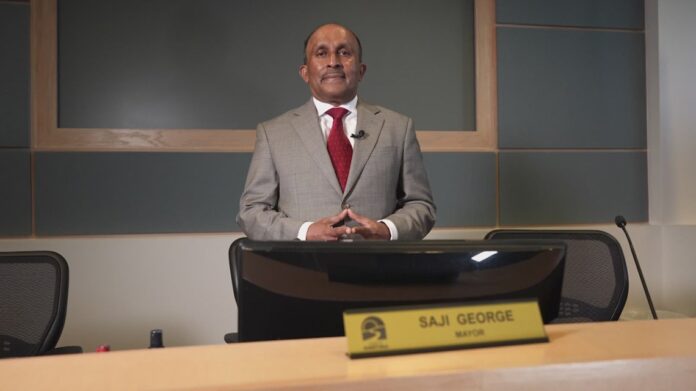South Asian elected officials in Texas are mobilizing for civic engagement in their fast-growing communities.
DALLAS — We sat down with three South Asians who hold elected positions in different North Texas cities. Each of them represents the fastest-growing minority group in the state, yet one that’s often politically underrepresented.
Saji George is now in his fifth term as mayor of Sunnyvale, with 15 years in public service. Elizabeth Abraham joined the Murphy town council in 2019. Tony Singh is starting his third term on the city council of Little Elm.
All three are of Indian descent. South Asian generally refers to Indians, Pakistanis, Nepalese, Sri Lankans, and Bangladeshis.
“So we wield all this power we don’t use? Essentially. Yes,” said Chanda Parbhoo with the SAAVETX Education Fund, South Asian American Veteran Empowerment of Texas Education Fund, who says mobilizing South Asians to be civically engaged is critical.
The organization aims to “increase the political power of Texas’s South Asian-American community, through education, engagement, and empowerment.” The large influx of South Asians to the area has resulted in more people running for public office.
“I think it’s inspiring to have these people get elected. Just the fact that we have people running for office is starting to bring to light our issues,” said Parbhoo.
“I never had a desire or a vision to be in politics. This is about merit and willingness to serve,” said Saji George. Saji tells WFAA that his entrance into the public forum started in the early 2000s when he did behind-the-scenes work for a school bond.
All three officials started with community involvement before running for office.
“Public service is an extension of what they already do in their life,” said George, who says many South Asians who are interested in public office are already taking on huge roles in their churches, temples, schools, and neighborhood organizations.
“I served on a couple of boards. Got a little more experience in city government,” said Elizabeth Abraham of Murphy. She still vividly remembers those early races and her first foray into politics. In 2017, she lost the general election by five votes and the runoff by two votes.
“My story there is that every vote matters, that was tough to come back from that,” Abraham said.
She credits her father as her inspiration for getting into politics. The City of Murphy has a South Asian population of 15%, which is significant compared to other Dallas suburbs.
“I do get a lot of ‘I’m glad you’re doing this.’ I wanna be that inspiration to the young girls,” Abraham said, including her own two daughters.
Tony Singh tells WFAA that 2% of the electorate in Little Elm is South Asian. He remembers early on in his run for public office, he knocked on ‘hundreds’ of doors and introduced himself to the community-especially a community that doesn’t look like him.
“You represent everybody. Your job is to do what is best for the city,” said Singh.
They balance careers, family, and public scrutiny—but understand their impact.
“You’re either a part of the table or you’re part of the menu,” said Singh.
Frisco alone had seven South Asians on the ballot this May, between school district and city races. Frisco also has one of the highest concentrations of South Asians in North Texas, a growth that even rivals the rates seen in Houston.
“I don’t think you can categorize South Asians in one bucket,” Parbhoo said, referring to the pitfalls political candidates run into when courting the South Asian population. Parbhoo says it is important to note that just because you’re a South Asian candidate, that doesn’t mean you’ll get their vote, and the South Asian vote is never enough to win an election.
When asked what advice they’d give the younger generation who is considering running for office, Mayor George said, “You have to be part of the solution you advocate for,” he said.
Representation matters. And it’s growing in North Texas.

